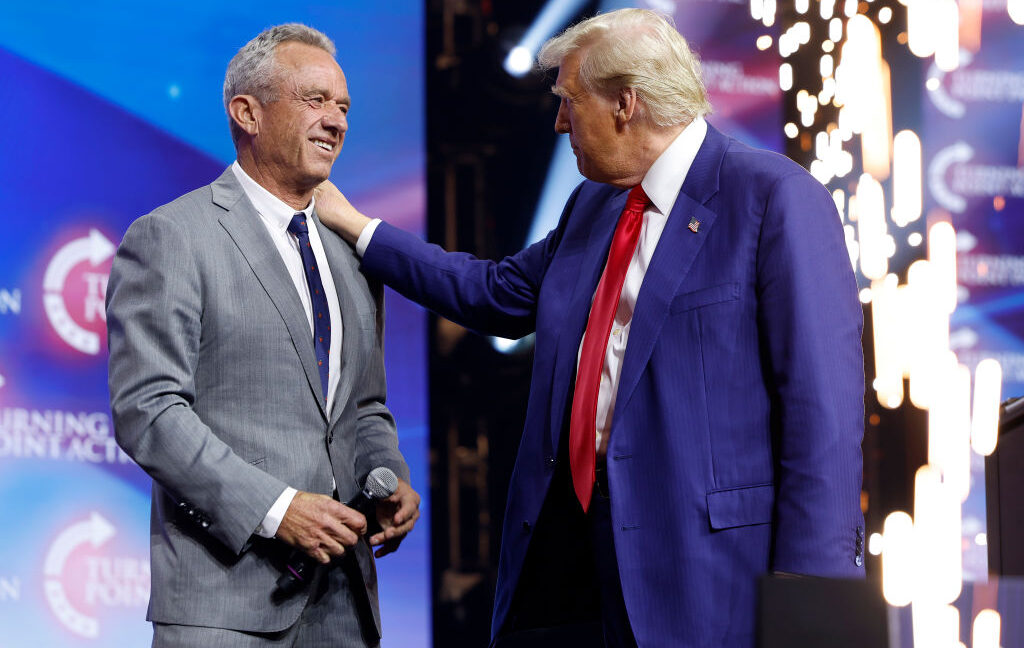Earlier this week, Robert F. Kennedy, Jr. used a Zoom call to tell his supporters that Donald Trump had promised him "control" of the Department of Health and Human Services (HHS), the federal agency that includes the Centers for Disease Control, Food and Drug Administration, National Institutes of Health, as well as the Department of Agriculture. Given Kennedy's support for debunked anti-vaccine nonsense, this represents a potential public health nightmare.
A few days after, Howard Lutnick, a co-chair of Trump's transition team, appeared on CNN to deny that RFK Jr. would be put in charge of HHS. But he followed that with a long rant in which he echoed Kennedy's spurious claims about vaccines. This provides yet another indication of how anti-vaccine activism has become deeply enmeshed with Republican politics, to the point where it may be just as bad even if Kennedy isn't appointed.
Trump as Kennedy’s route to power
Kennedy has a long history of misinformation regarding health, with a special focus on vaccines. This includes the extensively debunked suggestion that there is a correlation between vaccinations and autism incidence, and it extends to a general skepticism about vaccine safety. That's mixed with conspiracy theories regarding collusion between federal regulators and pharmaceutical companies. While there is no evidence for any of this, and some of it is clearly wrong, the conspiracies have real-world consequences. An anti-vaccine activist in Samoa, aided by a visit from RFK Jr., helped pave the way for a measles outbreak that shut down the government and ultimately led to over 80 deaths. Kennedy has long been interested in getting access to the agencies that regulate vaccines and other interests of his, such as food safety, under the assumption they are hiding the data that would vindicate his views. And, long before his recent presidential run, he viewed Trump as the route to that access. Shortly before Trump's inauguration in 2017, Kennedy claimed that he would be appointed to head a vaccine safety commission that Trump would supposedly create once in office. Nothing ever came of that, and it was never clear whether that was due to Trump lying to him, Kennedy exaggerating his significance, or Trump simply telling him what he wanted to hear at the time and never following up. We're now back in an ambiguous situation. On Monday of this week, Kennedy used a Zoom call with supporters to announce that Trump had promised him control of a number of federal health agencies:The key, which President Trump has promised me, is control of the public health agencies, which is HHS and its sub-agencies, CDC, FDA, NIH and a few others. And also the USDA, which is, you know, key to making America healthy, because we've got to get off of seed oils and we've got to get off of pesticides … and we need to make that transition to regenerative agriculture.Note that "control" is exceedingly ambiguous here. HHS and Agriculture are headed by occupants of separate cabinet positions. Even assuming Kennedy could get approved in a closely divided Senate or put in place as an acting head, having a single person in charge of both agencies is unlikely for various reasons. But (assuming Trump did promise this and will follow through), the ambiguity of "control" would allow Kennedy to be appointed as some sort of unofficial health czar. (This would be similar to some of the ideas floating around about Elon Musk being appointed to a governmental position that doesn't currently exist.)


